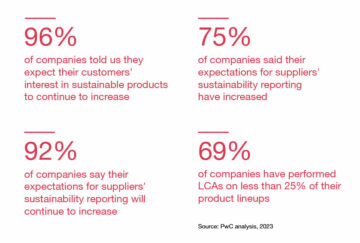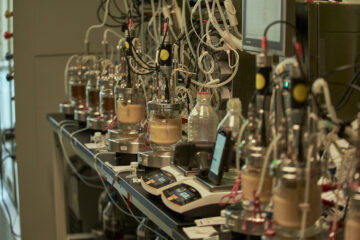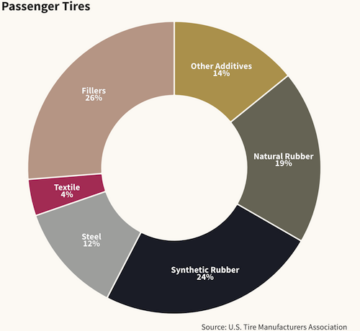
Google has become the latest multinational corporate to join a Shell-backed blockchain platform that allows airlines to sell sustainable aviation biofuels (SAF) credits to business customers, with the revenue challenged into further scaling up the emerging market for lower emission aircraft fuels.
First launched last year by Shell and American Express Global Business Travel (Amex GBT), the Avelia program aims to initially offer 1 million gallons of SAF credits to corporate customers, which it claims is roughly enough to power almost 15,000 business flights from London to New York City.
The initiative aims to connect firms with airlines willing to share the price premium on SAFs in order to slash emissions as well as ramp up demand in the emerging low-carbon biofuels market, according to Avelia, which claims it is one of the world’s first blockchain-powered SAF “book and claims” solutions for corporates looking to decarbonize their business travel.
Google joins a clutch of major firms already taking part in the program, including Bank of America and insurance giant Aon, alongside airlines such as Delta, Cathay Pacific, JetBlue and Japan Airlines.
Michael Terrell, senior director of climate and energy at Google, said the use of SAF would play a “critical role” in helping drive down emissions from aviation.
“Joining Amex GBT’s sustainable aviation fuel program further represents Google’s continued efforts to accelerate the global transition to a carbon-free future,” he added.
It follows the results of Google’s recent research collaboration with American Airlines and Breakthrough Energy, which found the global warming impact of aircraft contrails could be curbed significantly by harnessing AI data mapping to help pilots make improved flight path decisions.
SAF is increasingly seen by airlines as a key pillar in their efforts to reduce emissions from flight in the near-term, as such fuels — which can be made from a variety of sources, including waste oils, municipal waste, crops, animal fats and even captured industrial gases — can offer up to 80 percent lower emissions compared to conventional fossil-based jet fuels if a plane’s engine is powered using SAF alone.
At present, however, SAF makes up less than 0.1 percent of available aviation fuel worldwide, and it is also between two and eight times more expensive than conventional fossil-based jet fuels.
As such, there remains significant concerns over whether sufficient sustainable feedstocks can be sourced to meet growing demand for aviation fuels and whether costs can be reduced to a level whereby airlines can embrace the technology at scale.
But Andrew Crawley, president at Amex GBT, argued SAF had a key role to play in decarbonizing flight, which makes up around 90 percent of business travel emissions, thereby underscoring the importance for firms in tackling their aviation carbon footprint.
“Business travel is a crucial passenger segment for aviation, accounting for around 15 percent of air travel globally and generating around 40 percent of revenues,” he said. “To have Google join our growing SAF program demonstrates how corporate collaboration can accelerate aviation’s transition to net zero and enable more sustainable travel.”
By drawing together Shell Aviation’s airline customers and the purchasing power of Amex GBT’s more than 19,000 corporate customers across 140 countries worldwide, the two firms said they hoped Avelia could help to ramp up demand and drive down costs at scale for SAF by sending an important investment signal to market.
Jan Toschka, president at Shell Aviation, therefore also welcomed Google’s participation in the initiative as “an important milestone.”
“As scaling the uptake of SAF will only be possible if all parts of the aviation value chain work together, we’re thrilled to work with such an influential and forward-thinking company,” he added.
- SEO Powered Content & PR Distribution. Get Amplified Today.
- PlatoData.Network Vertical Generative Ai. Empower Yourself. Access Here.
- PlatoAiStream. Web3 Intelligence. Knowledge Amplified. Access Here.
- PlatoESG. Automotive / EVs, Carbon, CleanTech, Energy, Environment, Solar, Waste Management. Access Here.
- PlatoHealth. Biotech and Clinical Trials Intelligence. Access Here.
- ChartPrime. Elevate your Trading Game with ChartPrime. Access Here.
- BlockOffsets. Modernizing Environmental Offset Ownership. Access Here.
- Source: https://www.greenbiz.com/article/google-joins-shell-backed-sustainable-aviation-fuel-credit-program
- :has
- :is
- $UP
- 000
- 1
- 15%
- 19
- 40
- 80
- 90
- a
- accelerate
- According
- Accounting
- across
- added
- AI
- AI Data
- aims
- AIR
- air travel
- aircraft
- airline
- Airlines
- All
- allows
- alone
- alongside
- already
- also
- america
- American
- American Express
- amex
- an
- and
- Andrew
- animal
- argued
- around
- AS
- At
- available
- aviation
- Bank
- Bank of America
- BE
- become
- between
- blockchain
- blockchain platform
- blockchain-powered
- book
- breakthrough
- business
- business customers
- by
- CAN
- captured
- carbon
- carbon footprint
- cathay pacific
- chain
- challenged
- City
- claims
- Climate
- collaboration
- company
- compared
- Concerns
- Connect
- continued
- conventional
- Corporate
- corporates
- Costs
- could
- countries
- credit
- Credits
- critical
- crops
- crucial
- Customers
- data
- decisions
- Delta
- Demand
- demonstrates
- Director
- down
- drawing
- drive
- efforts
- eight
- embrace
- emerging
- emerging market
- emission
- Emissions
- enable
- energy
- Engine
- enough
- Ether (ETH)
- Even
- expensive
- express
- firms
- First
- flight
- Flights
- follows
- Footprint
- For
- forward-thinking
- from
- Fuel
- fuels
- further
- future
- generating
- giant
- Global
- global business
- global warming
- Globally
- Growing
- had
- Harnessing
- Have
- he
- help
- helping
- How
- However
- HTTPS
- if
- Impact
- importance
- important
- improved
- in
- Including
- increasingly
- industrial
- Influential
- initially
- Initiative
- insurance
- into
- investment
- IT
- Japan
- jetBlue
- join
- joining
- Joins
- jpg
- Key
- Last
- Last Year
- latest
- launched
- less
- Level
- London
- looking
- low-carbon
- lower
- made
- major
- make
- MAKES
- mapping
- Market
- Meet
- milestone
- million
- more
- multinational
- municipal
- net
- New
- New York
- new york city
- of
- offer
- oils
- on
- ONE
- only
- order
- our
- over
- Pacific
- part
- participation
- parts
- path
- percent
- Pillar
- Pilots
- platform
- plato
- Plato Data Intelligence
- PlatoData
- Play
- possible
- power
- powered
- Premium
- present
- president
- price
- Program
- purchasing
- Ramp
- RE
- recent
- reduce
- Reduced
- remains
- represents
- research
- research collaboration
- Results
- revenue
- revenues
- Role
- roughly
- s
- Said
- Scale
- scaling
- seen
- segment
- sell
- sending
- senior
- Share
- Shell
- Signal
- significant
- significantly
- Solutions
- sourced
- Sources
- such
- sufficient
- sustainable
- sustainable aviation fuel
- tackling
- taking
- Technology
- than
- that
- The
- The Initiative
- the world
- their
- There.
- thereby
- therefore
- they
- thrilled
- times
- to
- together
- transition
- travel
- two
- uptake
- use
- using
- value
- variety
- Waste
- we
- welcomed
- WELL
- whether
- which
- will
- willing
- with
- Work
- work together
- world
- worldwide
- would
- year
- york
- zephyrnet
- zero









